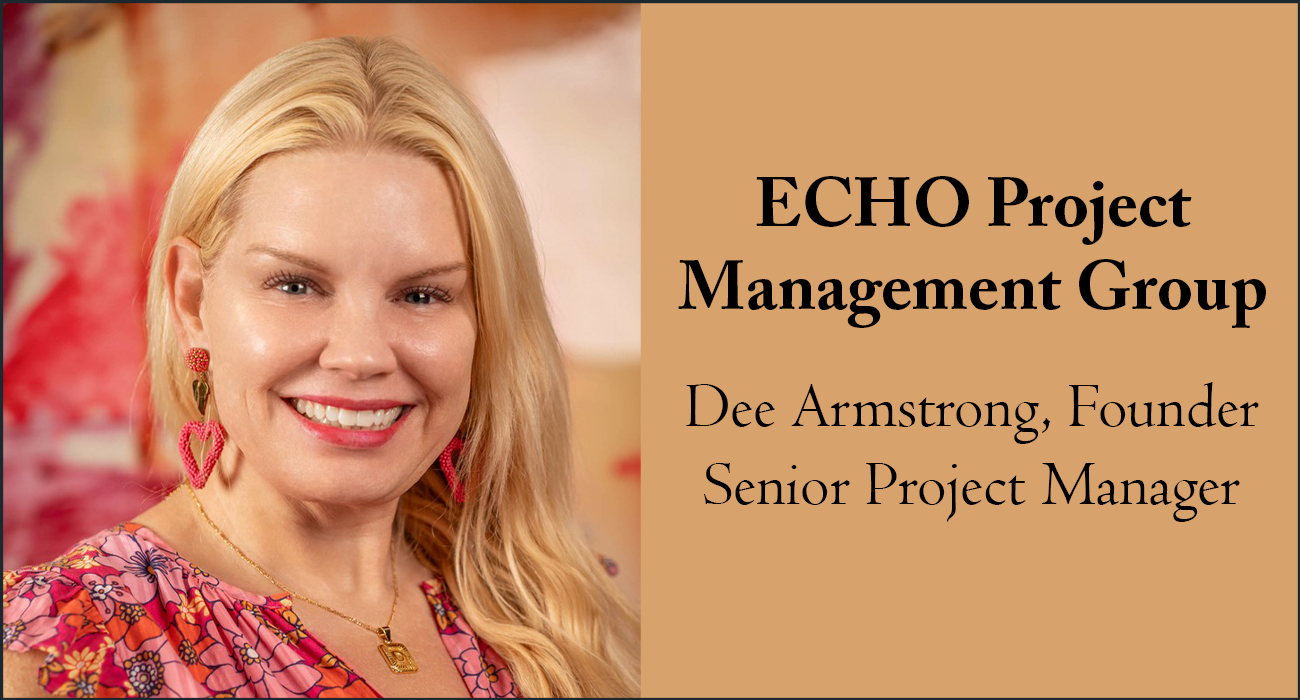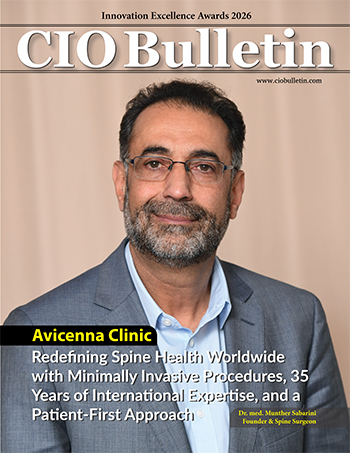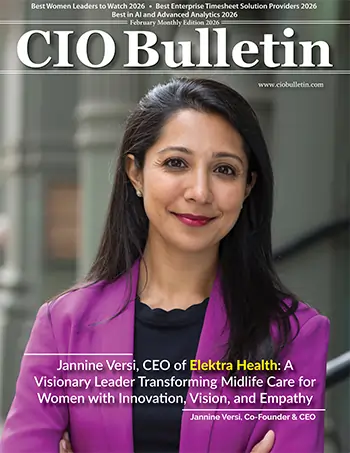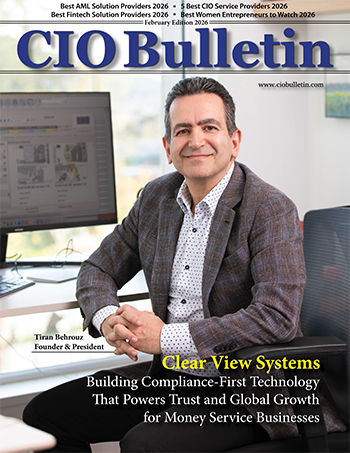Global Best Companies of the Year 2025
CIO Bulletin

Countless hearts worldwide bear the heavy burden of rare diseases, chronic illnesses, and mental health struggles—stories silenced, hopes dimmed by a healthcare system stretched too thin. The pain of feeling invisible, of yearning for progress while answers slip away, cuts deep. Research often feels cold, a far-off process that overlooks the very people it should serve. Yet, in this quiet despair, a flame of hope ignites. A visionary group, ECHO Project Management Group, steps in, fueled by a fierce passion to amplify every voice and weave every story into the heart of medical breakthroughs. With gentle care and unwavering resolve, they create a haven where personal experiences spark change, connecting patients to doctors, researchers, and visionaries who dare to dream boldly.
From a place of personal pain, ECHO Project Management Group emerged. Dee Armstrong, its founder, watched her uncle battle schizophrenia and her grandmother face Alzheimer’s, feeling the sting of inadequate care. Driven by love and resolve, Dee launched ECHO to champion patient-driven research. It’s a sanctuary where those with rare diseases, chronic conditions, or mental illnesses share their journeys, fueling advancements in care.
ECHO’s dedication is unmatched—blending precision, warmth, and relentless drive. Participants join a vibrant community, their insights shaping the work of doctors and researchers. Imagine: one story sparking a medical breakthrough, one voice uplifting thousands. ECHO amplifies these truths, creating ripples of hope for today and tomorrow. Together, they craft a legacy of compassion and impact.
We at CIO Bulletin had the privilege of interviewing Dee Armstrong, Founder and Senior Project Manager of ECHO Project Management Group. She shared valuable insights into how her company is transforming personal stories into medical breakthroughs—uniting patients with innovators, delivering heartfelt care, and ensuring that every voice sparks hope.
ECHO Project Management Group: A Voice for Every Patient
When Dee Armstrong founded ECHO Project Management Group, Inc. in 2015, it wasn’t a calculated business move; it was a deeply personal response to something the medical field was too often missing: humanity.
Having cared for loved ones with schizophrenia and Alzheimer’s, Dee understood firsthand the complexity and invisibility that patients and caregivers face. Their stories were often reduced to clinical notes or statistical anomalies. The silence surrounding their experiences sparked something in her—an unwavering mission to make sure patients would never again feel invisible in the research that shaped their care.
From that personal spark, ECHO was born—not just a medical market research company, but a movement to amplify patient voices in the loud, fast-moving world of healthcare innovation. In a sector often obsessed with data, ECHO brings soul (and maybe a little sass).
Bridging the Divide between Patients and the Medical World
ECHO’s mission is straightforward yet profound: to bridge the gap between patients and the medical field by ensuring that every story matters. But achieving that requires more than a promise. It means building systems, relationships, and research methodologies that respect the nuances of every patient’s experience, especially in areas where those voices are hardest to hear.
Whether it’s a 72-year-old man living with Geographic Atrophy in a rural Texas town, or a young adult navigating life with treatment-resistant mental illness, ECHO doesn’t believe in one-size-fits-all research. “No one patient fits neatly into a box,” Dee often says, and it’s this core belief that informs everything ECHO does.
A Toolbox Built for Truth (and Built to Last)
ECHO offers a broad and flexible range of methodologies to meet people where they are—literally and emotionally. While in-home ethnographies were once a staple, they were retired due to the nature of the patient population and the realities of COVID, flu, and other risk factors. In their place, ECHO now utilizes more accessible and safer methods like online links, online diaries, and product/device testing that still allow for deep, human-centered insight.
And while ECHO doesn’t write pre-screeners, they do review them carefully. If something doesn’t align with their model of respect, clarity, and feasibility, they walk away from the study. No compromise. Ever.
That unwavering standard extends to their data practices. In an industry notorious for sketchy resells and surprise outreach, ECHO is one of the rare companies that actually sticks to its word. Respondent data isn’t just protected—it’s encased in concrete. “We don’t sell it. We don’t share it. We don’t even whisper about it,” Dee jokes. “Seriously, the only thing more secure than our respondent list is probably Fort Knox.”
Collaborating for Change
ECHO works hand-in-hand with pharmaceutical companies, physicians, CROs, and medical institutions—not just to collect data, but to shift paradigms. They don't just hand over transcripts; they deliver context, emotion, and depth that drive smarter decisions and more patient-centric innovations.
What sets them apart? They're not afraid to speak up. If a protocol risks overwhelming the patient, ECHO says so. If a recruitment design isn’t accessible enough, ECHO adapts. This proactive collaboration helps ensure that patient-centered research is more than just a buzzword—it’s a standard.
Shining Light on the Rare and Overlooked
Rare diseases. Chronic mental health conditions. Underrepresented demographics in medical research. These are the places where most recruiters struggle—and where ECHO thrives.
Why? Because Dee and her team don’t chase the easy wins. They go where the work matters most. And they’re relentless about reaching the hard-to-reach with compassion, cultural fluency, and creativity.
Their recent work in Follicular Lymphoma, Geographic Atrophy, and treatment-resistant depression showcases this. In each case, ECHO didn’t just hit quotas—they elevated voices that had never been heard in research before.
Building a Trusted Community
Over time, ECHO has done more than recruit participants—it has built a connected, loyal community of patients and caregivers who return time and again because they feel seen and respected. This trust didn’t happen overnight. It’s the product of:
This is why physicians, social workers, support group directors, and patient advocates consistently refer participants to ECHO: because they trust ECHO to treat people with dignity.
The Future: Loud, Bold, and Full of Heart
As ECHO looks toward the future, the mission remains unchanged—but the tools are evolving. The company is currently exploring ways to:
And through Dee’s personal passion project, the SMILE Initiative, ECHO is extending its reach beyond research. Proceeds from partner ventures support shelters, community art programs, and organizations that offer second chances—because healing doesn’t always start in a clinic.
Echoes That Matter
At its core, ECHO Project Management Group is about making sure that behind every molecule, every treatment, every data point, there’s a real person whose life is being impacted. And they deserve to be heard.
In a world of noise, ECHO continues to be a clear, strong voice—echoing every story that deserves to change the future of medicine.

Insurance and capital markets







